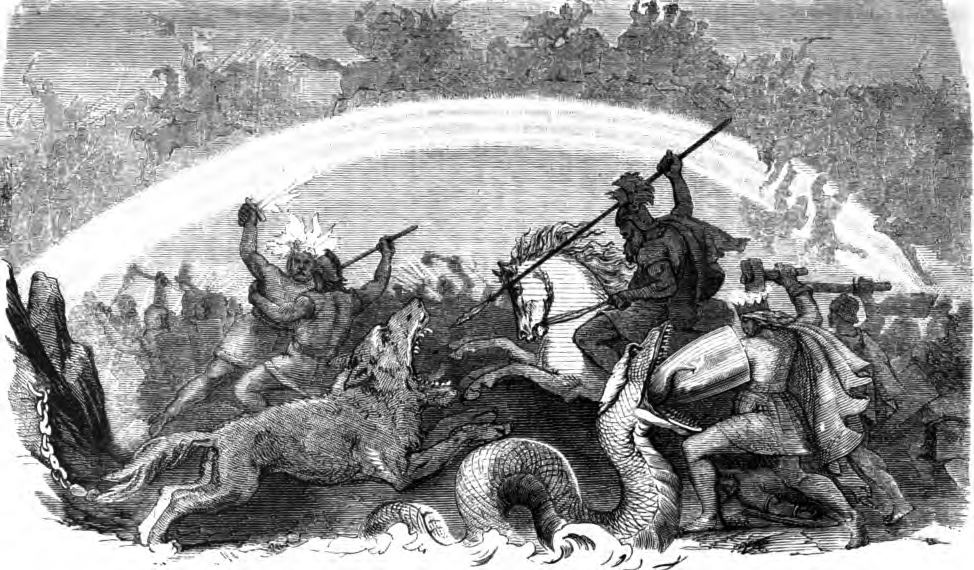The myth of Ragnarok is one of the most significant and well-known stories in Norse mythology. It tells of the final battle between the gods and their enemies, which will ultimately lead to the destruction and rebirth of the world.
According to the myth, the events leading up to Ragnarok will be marked by chaos and upheaval. The god Loki will break free from his bonds and lead an army of giants, monsters, and the dead against the gods. The great wolf Fenrir will break free from his chains, and the world serpent Jormungandr will rise from the sea.
The gods will fight valiantly, but ultimately, they will be defeated. Odin will be killed by Fenrir, and Thor will fall to Jormungandr. The world will be consumed by fire and darkness, and the gods and their enemies will be destroyed.
However, the myth also tells of a new world that will rise from the ashes of the old. The surviving gods will be joined by two humans, Lif and Lifthrasir, who will emerge from hiding and repopulate the world. The sun and the moon will be reborn, and a new cycle of life and death will begin.
The myth of Ragnarok is significant because it reflects the Norse understanding of the cyclical nature of life and death. It also emphasizes the importance of bravery and honor in the face of adversity.
The myth can also be interpreted in a broader context as a reflection of the Norse worldview. The idea of a final battle between good and evil is a common theme in many mythologies, and in Norse mythology, it represents the struggle between chaos and order.
Overall, the myth of Ragnarok is a powerful and haunting tale that illustrates the depth and complexity of Norse mythology.
Works Cited:
Crossley-Holland, Kevin. The Norse Myths. Pantheon Books, 1981.








